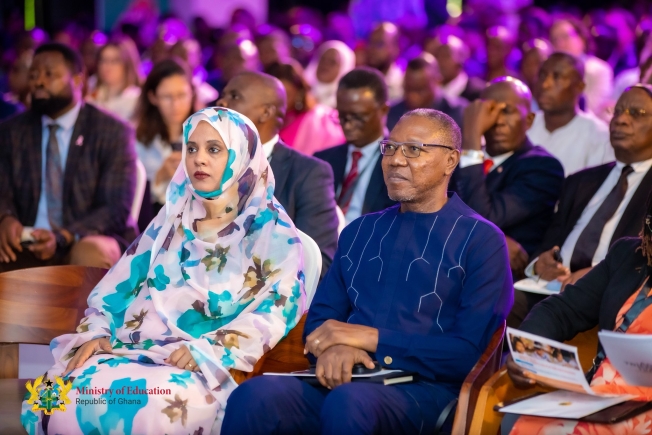
Use of mother tongue saga: 'We have not dropped English as language of instruction in basic schools' – Dep Education Minister
The Ministry of Education has clarified that it has not dropped English as language of instruction in Basic Schools in the country.
It explained that there was very strong global evidence that teaching children in a language they understood, alongside English, strengthened their performance across all subjects in school.
“Teaching in a language the child does not understand or speak well creates major barriers to literacy acquisition.
“So, we are committing to revisit the policy, based on global evidence, to ensure that we are teaching effectively from KG to Basic Year Three to improve learning outcomes.
“This includes looking at how we can draw upon the success of Ghanaian programmes such as Complementary Basic Education to involve communities and extend early grade teaching beyond our 12 official languages,” a statement signed and issued by the Deputy Minister of Education Clement Abass Apaak said.
Last week, the Minister of Education Haruna Iddrisu at a durbar to climax the 75th anniversary of Ho Mawuli, directed all basic schools to now fully implement the policy of using Ghanaian languages as the medium of instruction from kindergarten to lower primary.
He said research findings had proved beyond doubt leaners grasp the message in the classrooms better in languages they were most conversant with.
The directive has since been variously misinterpreted, with some explaining that the directive meant that the use of English as a language of instruction at the basic level had been dropped.
But in the statement, the Deputy Minister explained that the policy on the use of children’s home languages with additional languages; English, carefully introduced alongside was not new.
The statement said the policy had been in existence since independence but implementation of it had not been effective and was stalled.
“Our education system needs to equip learners with the foundational skills they need to navigate our increasingly complex and uncertain world.
“All learners need to develop the skills they need to thrive and be ready for the world of work, further studies and responsible adulthood,” the statement added.
It said the policy, when enacted through consultation, was to ensure that Ghanaian children, by the time they completed Basic Year Three, were well grounded in their playground or home language as a foundation for learning other languages as they progressed through their education.
“As evidence has shown, the practice in countries such as China, Finland, Japan and Malaysia; proficiency in a home language or play ground language is key to learning other languages effectively.
“It also helps in developing in young learners, national identity and appreciation of cultural values,” the statement said, adding that the Ministry of Education was keen to ensure that no learner was left behind in receiving the quality education they deserved.
“It is their right. We respect their right. At the end, we are nurturing individuals into responsible national adults and global citizens,” the statement emphasised.
It, said the Ministry would therefore not and had not cancelled the study of English and other international languages.
